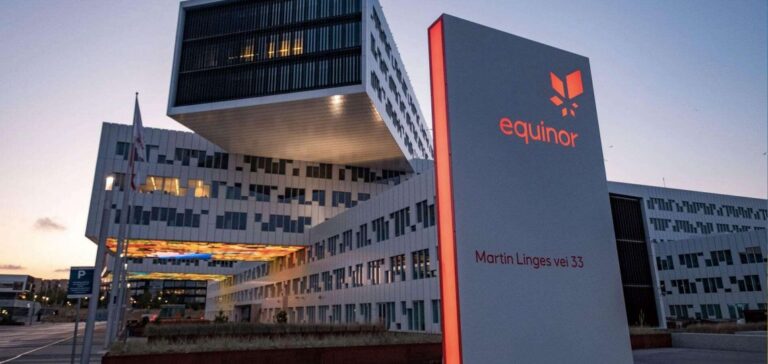Norwegian energy giant Equinor has come to the rescue of a Europe desperate for gas, posting record quarterly results that have helped fill the coffers of a Norway that is getting richer, officially in spite of itself, because of the war in Ukraine.
The numbers are staggering: in the third quarter, Equinor saw its net profit jump to $9.4 billion from $1.4 billion a year earlier. This is more than the French “supermajors” TotalEnergies ($6.6 billion) and the British ($6.7 billion), whose superprofits are the subject of debate.
Since the beginning of the year, the group has earned nearly $21 billion.
It is reaping the rewards of its efforts to increase its natural gas production for the benefit of Europe, which has paid 60% more for it than it did a year ago due to soaring prices.
Due to the reduction in Russian deliveries as a result of the war in Ukraine, Norway has become the leading supplier of gas to a beleaguered Europe, now covering 25% of its imports.
In the third quarter, Equinor delivered 11% more gas to Europe than a year ago, thanks in part to the restarting of a gas liquefaction plant in Hammerfest, northern Norway, after a fire.
“The Russian war in Ukraine has changed energy markets, reduced energy availability and increased prices,” noted CEO Anders Opedal. “Equinor continues to provide stable flow and high production, with record levels of gas from the Norwegian continental shelf.”
“The role of Norway and Equinor as a reliable energy supplier is more important than ever,” he argued in a statement.
As the Scandinavian country plays an increasingly important role in Europe’s energy supply, especially as winter approaches, particular attention is paid to the safety of its oil and gas installations.
After the sighting of mysterious drone flights, including near oil platforms far out at sea, and the alleged sabotage of the Nord Stream 1 and 2 gas pipelines in the nearby Baltic Sea, Oslo has increased security around its strategic sites.
– War profiteer’? –
Globally and including oil, Equinor produced just over 2 million barrels of oil equivalent per day (Mboe/d) in the third quarter, an increase of 1% year-on-year.
The group’s preferred indicators, adjusted operating income – which eliminates certain exceptional items – jumped to $24.3 billion from $9.8 billion a year ago, and adjusted net income to $6.7 billion from $2.8 billion.
Revenues almost doubled to 43.6 billion. Unlike in other countries, these “super-profits” are little debated in Norway, a country that owes its prosperity to its immense energy resources and where oil companies are already heavily taxed (78%).
As Equinor is 67% owned by the Norwegian state, a large part of these profits will be added to the country’s huge sovereign wealth fund, which is currently worth nearly 1,200 billion euros.
For the third quarter, the group is proposing to pay a special dividend of $0.7 per share in addition to a regular dividend of $0.2.
It also plans to launch a fourth tranche of its share buyback program, which is expected to reach $6 billion this year.
But these “superprofits” annoy environmentalists.
“Equinor is bathing in money because of the war in Ukraine, but yet does not have to pay a contribution in the face of high prices and will continue to use at least 80% of its investments to produce more oil and gas. Irresponsible,” tweeted Truls Gulowsen, head of the Norwegian branch of the NGO Friends of the Earth.
Above all, Norway’s enrichment has led to it being accused of being a “war profiteer”.
“If there are times when it is not fun to make money, this is one of them,” says Norwegian Oil and Energy Minister Terje Aasland – while stubbornly rejecting the demand of some EU countries, including France, to cap the price of gas.
According to Oslo, a cap could be counterproductive by diverting certain volumes of gas from the European continent.






















